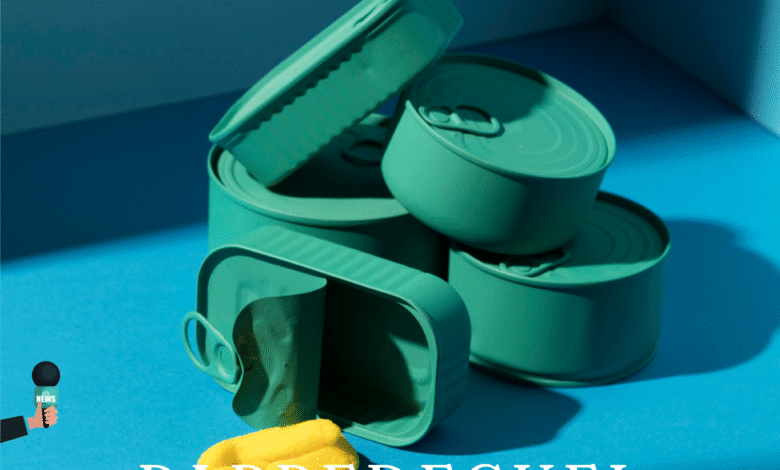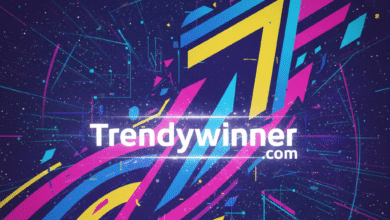
Pappedeckel is a German term that translates to “cardboard lid,” and it has become a cornerstone in sustainable packaging solutions across the globe.
This simple yet highly effective product is used in a variety of industries, from food and beverages to cosmetics and retail, providing a strong, eco-conscious alternative to plastic lids.
With environmental concerns growing worldwide, the Pappedeckel stands out as an innovative, affordable, and recyclable option that businesses and consumers alike can rely on.
In recent years, sustainable packaging has shifted from being a niche trend to an urgent necessity, driven by rising awareness about plastic pollution and its devastating impact on ecosystems.
Pappedeckel cardboard lids offer an ideal balance of functionality, environmental responsibility, and branding opportunities.
They are lightweight, customizable, and biodegradable, making them the perfect fit for companies aiming to enhance their eco-friendly credentials without compromising quality or usability.
Understanding the Versatility of Pappedeckel
A Pappedeckel is far more than just a cover for cups or containers—it is a representation of the global push toward sustainable innovation.
The material used is typically sturdy cardboard, designed to withstand temperature changes, moisture, and the rigors of transportation.
Because of its adaptability, the Pappedeckel can be manufactured in different shapes, sizes, and designs, enabling brands to maintain consistency in style while meeting packaging needs.
Food service companies are among the top users of Pappedeckel cardboard lids.
From coffee shops to ice cream parlors, these lids serve as a hygienic, protective barrier that keeps products fresh while reducing environmental impact.
Unlike plastic alternatives, cardboard lids can be composted or recycled, aligning perfectly with zero-waste initiatives.
In retail, Pappedeckel is commonly used for gift boxes, storage containers, and specialty packaging where presentation matters just as much as protection.
Brands can print logos, designs, and messages directly on the cardboard surface, turning a functional lid into a marketing asset.
Environmental Impact and Benefits of Pappedeckel
The rise of Pappedeckel packaging is largely attributed to its significant environmental benefits.
Cardboard is derived from renewable resources, primarily wood pulp from responsibly managed forests.
When disposed of properly, it can be recycled multiple times before reaching the end of its lifecycle.
One of the biggest advantages of Pappedeckel over plastic lids is the drastic reduction in carbon footprint.
Plastic production relies heavily on fossil fuels, emits large amounts of greenhouse gases, and poses severe risks to marine life.
Cardboard lids, on the other hand, break down naturally without leaving toxic residues.
Additionally, the manufacturing process for Pappedeckel cardboard lids is energy-efficient compared to plastic alternatives.
Even better, many manufacturers are now using recycled cardboard, further minimizing resource consumption.
For eco-conscious consumers, choosing products with Pappedeckel lids is a small yet impactful way to support environmental conservation.
Industries Using Pappedeckel and Their Innovations
The adaptability of Pappedeckel makes it an attractive option across various industries.
The food and beverage sector remains the largest adopter, using cardboard lids for hot and cold drinks, ready-to-eat meals, and takeaway containers.
The cosmetic industry also benefits from Pappedeckel packaging, using it for creams, powders, and other products that require secure sealing.
E-commerce and retail packaging often integrate Pappedeckel lids into shipping boxes for added protection and branding appeal.
Luxury brands particularly appreciate the customizable nature of these lids, allowing them to deliver an eco-friendly message without sacrificing aesthetics.
Some businesses have even developed waterproof Pappedeckel coatings made from biodegradable materials, extending the lid’s lifespan and expanding its use cases in high-moisture environments.
These innovations not only boost product durability but also maintain the eco-friendly promise that Pappedeckel stands for.
Why Businesses Are Switching to Pappedeckel
Switching to Pappedeckel lids is not just an environmentally responsible choice—it’s also a strategic business decision.
Customers increasingly prefer brands that demonstrate sustainable practices, and packaging plays a significant role in shaping brand perception.
By incorporating Pappedeckel cardboard lids, businesses can showcase their commitment to reducing waste and protecting the planet.
Moreover, Pappedeckel packaging offers cost efficiency in the long run.
Cardboard materials are often less expensive than certain plastics, and recycling options can further reduce disposal costs.
In a competitive market, eco-friendly packaging can also serve as a unique selling point, helping brands attract and retain loyal customers.
How to Source Quality Pappedeckel Lids
Finding a reliable supplier is crucial for businesses aiming to implement Pappedeckel packaging effectively.
Key factors to consider include material quality, durability, customization options, and compliance with environmental standards.
Working with suppliers who use certified sustainable materials ensures that the eco-friendly claims hold true.
Additionally, ordering in bulk can significantly lower per-unit costs, making Pappedeckel lids even more attractive for large-scale operations.
Some suppliers also offer innovative design services, allowing brands to incorporate unique colors, patterns, and messages into their packaging.
FAQs about Pappedeckel
Q1: What is a Pappedeckel made of?
A Pappedeckel is typically made from sturdy cardboard, often sourced from recycled or sustainably harvested wood pulp.
Q2: Are Pappedeckel lids waterproof?
Some versions feature biodegradable waterproof coatings, but standard cardboard lids may not be suitable for prolonged moisture exposure.
Q3: Can Pappedeckel lids be recycled?
Yes, they can be recycled multiple times, provided they are clean and free from food or liquid contamination.
Q4: How are Pappedeckel lids better than plastic lids?
They are biodegradable, recyclable, and made from renewable resources, reducing environmental impact compared to single-use plastics.
Q5: In which industries is Pappedeckel most commonly used?
Food and beverage, cosmetics, retail, and e-commerce industries widely use Pappedeckel lids for eco-friendly packaging.
Conclusion
The Pappedeckel has emerged as more than just a simple cardboard lid—it’s a symbol of the global shift toward sustainable living.
Its versatility, eco-friendly nature, and branding potential make it an invaluable choice for modern businesses seeking to balance performance with environmental responsibility.
From coffee shops to luxury brands, the adoption of Pappedeckel cardboard lids is proof that small changes in packaging can lead to significant positive impacts on the planet.
By embracing Pappedeckel packaging, we not only reduce our carbon footprint but also contribute to a cleaner, healthier future for generations to come.
Sustainability is no longer optional—it’s a necessity, and Pappedeckel is helping lead the way.
Stay in touch to get more updates & alerts on NYCNEWS! Thank you




